Discover Best of the Spectator
Best of the Spectator

Best of the Spectator
Author: The Spectator
Subscribed: 6,713Played: 665,097Subscribe
Share
© 343517
Description
Home to the Spectator's best podcasts on everything from politics to religion, literature to food and drink, and more. A new podcast every day from writers worth listening to.
Hosted on Acast. See acast.com/privacy for more information.
2479 Episodes
Reverse
For this special Spectator Out Loud, Sarah Perry reads her short story Slipshod, from the Spectator's Christmas issue. The story follows an academic tasked with reconstructing a disturbing incident involving two long-standing colleagues whose close friendship unravels under the weight of envy, illness – and something harder to explain. What emerges from the investigation is a chilling reflection on rivalry, resentment and how buried histories can resurface with devastating consequences.Produced by Patrick Gibbons.
Hosted on Acast. See acast.com/privacy for more information.
Anglican author The Rev'd Fergus Butler-Gallie, Catholic priest Fr Alexander Lucie-Smith and Evangelical commentator Fleur Meston join Damian Thompson to reflect on 2025. They discuss Pope Leo XIV's leadership so far, the choice of Dame Sarah Mullally as Archbishop of Canterbury and why Christianity has been coopted by the far right. Plus, was the 'quiet revival' of Church-going the start of a trend – or just a blip?Produced by Patrick Gibbons.
Hosted on Acast. See acast.com/privacy for more information.
The SNP’s Westminster leader Stephen Flynn, MP for Aberdeen South, joins Lucy Dunn for a special episode to assess the place of the SNP in British politics as we approach the end of 2025. The SNP were ‘decimated’ to just nine MPs at the 2024 general election – yet, if polls are to be believed, they are on course for another record win in the 2026 Holyrood elections. But can the SNP really frame this election as a ‘fresh start’?Flynn explains what he made of the ‘bleak fallout’ of 2024, why he is standing for election to Holyrood next year and what he makes of SNP heavyweights such as John Swinney and Nicola Sturgeon. Plus, could a push for a second independence referendum be on the cards soon?Produced by Patrick Gibbons and Oscar Edmondson.
Hosted on Acast. See acast.com/privacy for more information.
Surely needing no introduction to Spectator listeners, Michael Gove has been a staple of British politics for almost two decades. As a Christmas treat, he joins Lara Prendergast to talk about his memories of food including: the 'brain food' he grew up on in Aberdeen, his favourite Oxford pubs and the dining culture of 1980s Fleet Street. He also shares his memorable moments from his time in politics from dining with Elizabeth Hurley and Donald Trump's first state visit to his reflections on food policy as a former Education and also Environment Secretary. Plus – what has he made of the Spectator's parties since joining as editor? Produced by Patrick Gibbons.
Hosted on Acast. See acast.com/privacy for more information.
On this week’s special Christmas edition of Spectator Out Loud – part two: Dominic Sandbrook reflects on whether Lady Emma Hamilton is the 18th century’s answer to Bonnie Blue; Philip Hensher celebrates the joy of a miserable literary Christmas; Steve Morris argues that an angel is for life, not just for Christmas; Christopher Howse ponders the Spectator’s enduring place in fiction; Michael Hann explains what links Jeffrey Dahmer to the Spice Girls; and, the Spectator’s agony aunt Mary Killen – Dear Mary herself – answers Christmas queries from Emily Maitlis, Elizabeth Day, Rory Stewart and an anonymous Chief Whip of Reform UK. Produced and presented by Patrick Gibbons.
Hosted on Acast. See acast.com/privacy for more information.
As is fast becoming a tradition on Coffee House Shots at this time of year, James Heale and Tim Shipman are joined by sketch writer Quentin Letts to go through the events of the past 12 months. From sackings to resignations, and Farage to Polanski, it is a year in which the centuries-old consensus has been challenged and Westminster is delicately poised ahead of a 2026 which will define politics for the remainder of this parliamentary term. On the podcast, they discuss who is up and who is down, why Farage might be running out of steam and who is the most insufferable MP?Produced by Oscar Edmondson and Megan McElroy.
Hosted on Acast. See acast.com/privacy for more information.
Freddy Gray speaks to Vanity Fair's Washington correspondent Aidan McLaughlin about their latest two-part interview with one of Trump's closest allies Susie Wiles. As chief of staff to the White House, she has given some of the most candid quotes about what really happens inside Trump's regime.
Hosted on Acast. See acast.com/privacy for more information.
The Spectator’s associate editor Toby Young sits down with master storyteller Bernard Cornwell, author of more than 50 international bestselling novels, including The Last Kingdom and much-loved Sharpe series. They delve into Cornwell’s life and career, discuss the real history behind his riveting tales of war and heroism and explore the enduring appeal of historical fiction. This event marks the launch of Sharpe’s Storm, a bold new chapter in the saga of Richard Sharpe, set amid the chaos of 1813 France.This discussion was part of the Spectator's speaker series. To see more on our upcoming events, go to events.spectator.co.uk.
Hosted on Acast. See acast.com/privacy for more information.
Michael Gove and Madeline Grant confront the horror of the Bondi Beach massacre and ask why anti-Semitic violence now provokes despair rather than shock. As Jewish communities are once again targeted on holy days, they examine the roots of Islamist ideology and the failure of political leaders to name it. Why has anti-Semitism metastasised across the radical left, the Islamist world, and the far right – and why does the West seem so reluctant to grapple with its causes?Then, on the 250th anniversary of Jane Austen’s birth, Michael and Maddie ask why Austen is endlessly repurposed, politicised and rewritten by modern adaptors? Was she an abolitionist, a moralist, or something far subtler – and why do her novels continue to resist ideological shoehorning two centuries on?And finally: what makes the perfect whodunit? From Agatha Christie and Dorothy L. Sayers to Midsomer Murders and modern television crime, the pair explore puzzles, red herrings, atmosphere – and why readers feel cheated when justice doesn’t quite add up.Produced by Oscar Edmondson.To submit your urgent questions to Michael and Maddie, visit spectator.co.uk/quiteright.
Hosted on Acast. See acast.com/privacy for more information.
Advertising guru – and the Spectator's Wiki Man columnist – Rory Sutherland joins Damian Thompson for this episode of Holy Smoke. In a wide ranging discussion, from Sigmund Freud and Max Weber to Quakers and Mormons, they discuss how some religious communities seem to be predisposed to success by virtue of their beliefs. How do spiritual choices affect consumer choices? Between Android and Apple, which is more Protestant and which is more Catholic? And what can modern Churches learn from Capitalism?Produced by Patrick Gibbons.
Hosted on Acast. See acast.com/privacy for more information.
US historian and classicist Victor Davis Hanson joins Americano for a wide-ranging assessment of Donald Trump’s first year back in office, from the economy and immigration to Ukraine and the future of the West.
Hosted on Acast. See acast.com/privacy for more information.
On this week’s special Christmas edition of Spectator Out Loud – part one: James Heale wonders if Keir Starmer will really have a happy new year; Gyles Brandreth discusses Her Majesty The Queen’s love of reading, and reveals which books Her Majesty has personally recommended to give this Christmas; Avi Loeb explains why a comet could be a spaceship; Melanie McDonagh compares Protestant and Catholic ghosts; Mary Wakefield explains what England’s old folk songs can teach us; Richard Bratby says there is joy to be found in composers’ graves; and, Rupert Hawksley provides his notes on washing up. Produced and presented by Patrick Gibbons.
Hosted on Acast. See acast.com/privacy for more information.
The Spectator heads into Christmas a little bit less Scottish as we bid farewell to our political correspondent Lucy Dunn. Before Lucy leaves for STV, she joins Coffee House Shots – with fellow Scots Michael Simmons and Labour MP Gordon McKee – for one final episode reflecting on the state of Scottish politics. They discuss whether the SNP has stabilised Scottish politics this year, make predictions for what could happen at the 2026 Holyrood elections and ponder whether the Scottish influence in Westminster has grown stronger under Starmer. Plus, from Reform to the SNP – how new is the threat of populism in Scotland?Produced by Patrick Gibbons.
Hosted on Acast. See acast.com/privacy for more information.
The Spectator’s bumper Christmas issue is a feast for all, with offerings from Nigel Farage, Matthew McConaughey and Andrew Strauss to Dominic Sandbrook, David Deutsch and Bonnie Blue – and even from Her Majesty The Queen.To take us through the Christmas Edition, host Lara Prendergast is joined by deputy political editor James Heale, associate editor Damian Thompson and writer of the Spectator’s new morning newsletter, Morning Press, Angus Colwell. They discuss: the state of British politics as we leave 2025 behind, and who will have a worse year ahead between Kemi and Keir; what physicist David Deutsch’s enthusiasm for humanity can teach us all in the age of AI; why the Sherlock Holmes stories have maintained such enduring appeal; whether England cricket fans will be celebrating good news from Down Under; as well as the best places to visit in London at Christmastime.Plus: who does Damian think is the ‘most repugnant, left-wing extremist leader’ in British politics, and who described Bonnie Blue as the ‘Emma Hamilton of the 21st century'?Happy Christmas from The Spectator. Produced by Patrick Gibbons.
Hosted on Acast. See acast.com/privacy for more information.
My guest on this week’s Book Club podcast is Jonathan C. Slaght, whose new book is Tigers Between Empires: The Journey to Save the Siberian Tiger from Extinction. He tells me about these remarkable animals, the remarkable people who studied them, and how their fates have been entwined with the shifting politics of post-Soviet Russia.
Hosted on Acast. See acast.com/privacy for more information.
In the wake of an extraordinary Budget – leaked an hour before the Chancellor addressed Parliament – The Spectator brings clarity to a turbulent political and take stock of how the announcements will impact you.Michael Simmons speaks with John Porteous of Charles Stanley and James Nation, formerly of the Treasury and No. 10, to discuss how the events unfolded and the deeper implications for long-term financial planning, taxation and market confidence.The conversation explores whether the government’s approach represents a credible fiscal strategy, what savers and investors should infer from changes to ISAs and pensions, and whether concerns about a growing UK ‘brain drain’ are justified.This podcast was created in partnership with Charles Stanley; editorial control remained exclusively with The Spectator.
Hosted on Acast. See acast.com/privacy for more information.
Tom Gilbey, the internet’s most charismatic wine expert, sits down with Olivia Potts for Table Talk. Tom is a winemaker, merchant, educator – and also an author. His new book, Thirsty, is part-memoir, part guide to his life through wine in 100 bottles, and is available now. On the podcast, Tom discusses his family’s love for winemaking that stretches back to the nineteenth century, and how he became captivated by the trade thanks to Beaujolais and a pike’s head. He explains how a glass of pinot gris in an ice bath propelled him to social media fame – where he’s known for taking a fun approach to wine tasting. Tom also reveals the best way to pair drinks with dishes and the unconventional way he’ll be cooking his turkey this Christmas. Plus: how did the English sparkling wine industry take off?Produced by Patrick Gibbons and James Lewis.
Hosted on Acast. See acast.com/privacy for more information.
Christopher Caldwell joins Freddy Gray to discuss why the 'Boomer generation' – those born between 1946 and 1964 – became one of the most hated generations in recent history. Chris argues that the Boomers uniquely benefited from the resources of other generations, and were able to enjoy the benefits of leftist politics alongside the political and economic freedoms associated with the right; the apex of their power perhaps being the Clinton/Bush era. To what extent are the Boomers responsible for the decline of America? And what merits are there in judging society through age? Plus, do the digital-millennial generation – those born at the late 1980s and early 1990s – mark the next era of cultural configuration?Produced by Patrick Gibbons and James Lewis.
Hosted on Acast. See acast.com/privacy for more information.
For this week's Spectator Out Loud, we include a compilation of submissions by our writers for their greatest artwork of the 21st century so far. Following our arts editor Igor Toronyi-Lalic, you can hear from: Graeme Thomson, Lloyd Evans, Slavoj Zizek, Damian Thompson, Richard Bratby, Liz Anderson, Deborah Ross, Calvin Po, Tanjil Rashid, James Walton, Rupert Christiansen and Christopher Howse.Produced and presented by Patrick Gibbons.
Hosted on Acast. See acast.com/privacy for more information.
This weekend’s Coffee House Shots digs into the growing debate over whether Keir Starmer should tack left on the economy as voters peel away to the Greens and Lib Dems – and why some in Labour think its migration stance is now more popular with their own voters than ever. Are Labour tacking left?But beyond policy, a deeper question looms: is Westminster’s obsession with ‘super-advisers’ drowning out the government’s message? Tom Baldwin argues that leaks, briefing wars and the hunt for the next ‘power-behind-the-throne’ are undermining Labour’s ability to tell a coherent story, while Tim Shipman asks why Starmer still struggles to communicate the values that drive him.James Heale speaks to Tim Shipman and Tom Baldwin, Keir Starmer's biographer.Produced by Oscar Edmondson.
Hosted on Acast. See acast.com/privacy for more information.



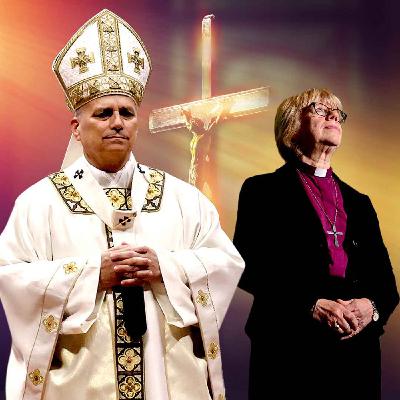


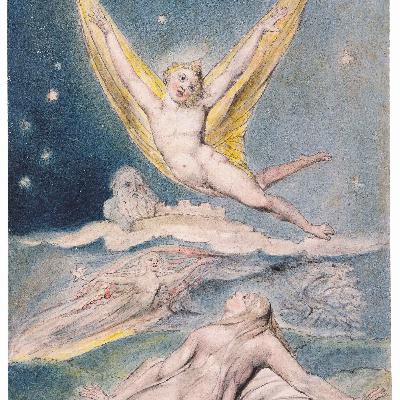




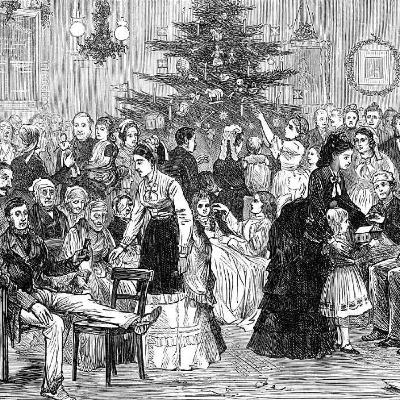




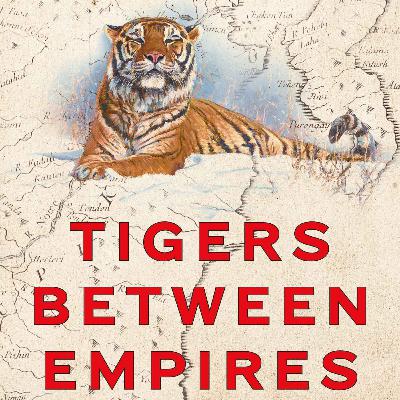
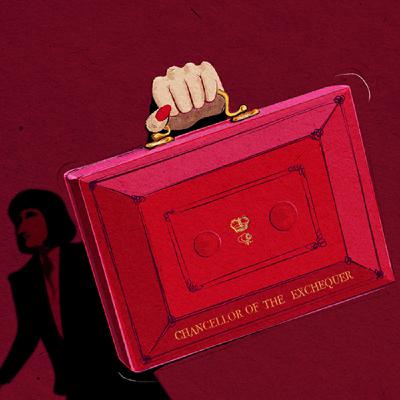


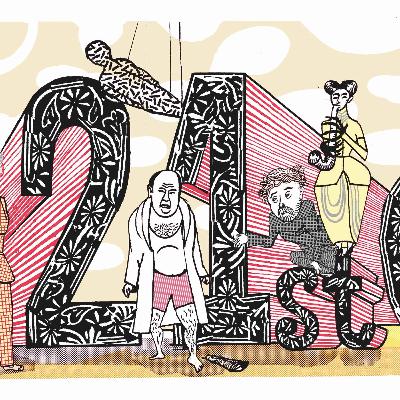




Thank you! You are absolutely right!! Unfortunately, our Aus government will not do anything for the good Aus people. They will punish the good people of Aus with suppression. I, and many of us are extremely furious!!!!@! We are thinking of the Jewish community and those who died.
anti semtism has been reduced to a pathetic fig leaf doomed to irrelevance by genocidal psychopaths that you are insidiously protecting making you directly complicit in genocide. shame on you
Brilliant!
I can not believe how far off the mark this woman is, and with the brazen confidence she possesses. Woman-splaining about men's apparent problems. How can society solve men's problems by treating them exactly how we've been solving women's problems? "...Taking on more feminine traits"... "and having fabulous makeovers. " Men are not women, so Moran seems to neglect. Of all the statistics she gives, she insists that men need to talk, express themselves, and cry in the way that women do. She demonstrates that she knows nothing of evolutionary psychology of the sexes, perhaps listening and reading more broadly and perhaps a professor of clinical psychology with over 35 years of clinical practice and teaching at Harvard may know better, but obviously, Jordan Peterson. She gives the most typical left-wing feminist view of the apparent monster that Dr. Jordan Peterson is and goes on to mischaracterise his book. Nothing interesting, valid, or new. Quite boring. She says that she uses the same
A gratuitous reference to 'atheist' in the title there, as if that was the salient issue with North Korea. But otherwise, good of The Spectator to focus some attention on the evil regime there.
one sided as usual
I will listen to this and give it a chance. However I really hope it's not gonna be full of bullshit. These Replicans have a terrible habit of making stuff up or lying to put it more succinctly.
I was very disappointed to find a contribution from Jacob Rees-Mogg on here. I can save everyone time from listening to it as it was nonsensical twaddle laced with obligatory lies. The usual stuff from this repulsive individual.
correction: the damage caused by *the response to* the pandemic.
Harry is a disgrace. stitching up his own family with a tissue of lies, to enrich himself and make a reasonably pretty girl (a 39 yr old divorced actress) like him. Big big error.
Max comes across as way to London centric.
Similar to the story about Genghis Khan on the Mongols. Yes they were brutal but they had freedom of religion, the promotion of people on merit, appreciation of art, they spread literacy, and many many other positive attributes. And that was back in the 13th century, while Europe was deep in the dark ages, eating mud for dinner.
what....the..fuck...
I found the... attitude... of the guests this week pretty dismissive of the Chinese Trump supporters.
Religious elite in corruption shock. Imagine my surprise.
this lady started as an interesting perspective but ended as a completely useful idiot for the CCP. She even washes over the Uigher genocide. what a disgraceful woman. great show as always, Cindy.
a ridiculous statement in this podcast. "this is driven by racism, anti-Communist racism." yeah obviously Communism is a race now. clown.
These people are the WORST of the Spectator
An interesting listen...
Katrina Ffrench was very rude. She cut in over the very reasonable bloke, saying "I'm finding it difficult to listen to this" but she actually meant "listen to me instead of him". She came across badly and damaged her cause. That said, some of the issues were definitely valid.